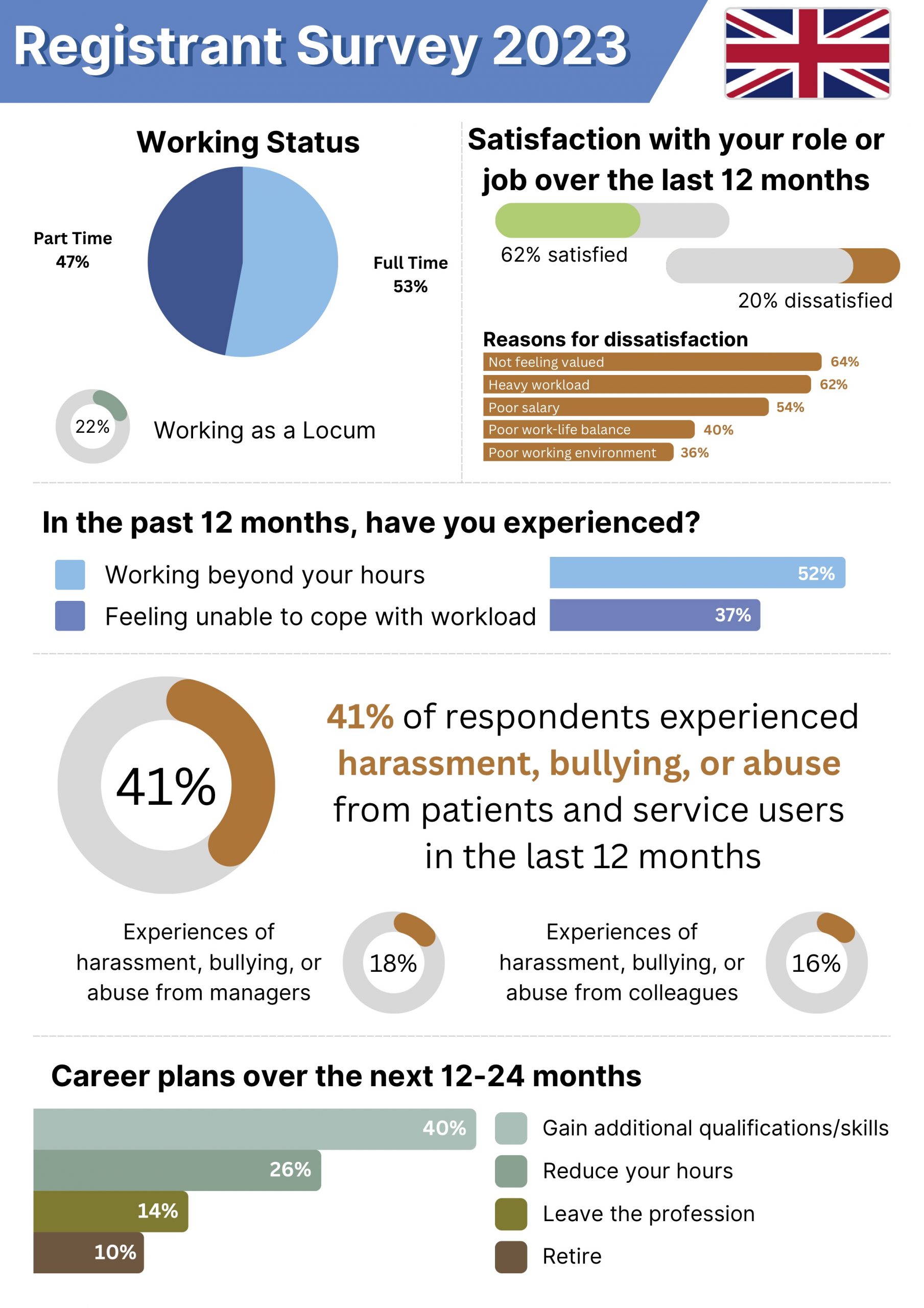Optical workplace bullying “deeply concerning”
 The General Optical Council (GOC) has published its Registrant Workforce and Perceptions Survey 2023, which found that high numbers of optical professionals are experiencing bullying, harassment, abuse or discrimination in the workplace.
The General Optical Council (GOC) has published its Registrant Workforce and Perceptions Survey 2023, which found that high numbers of optical professionals are experiencing bullying, harassment, abuse or discrimination in the workplace.
Forty-one per cent of respondents to the annual survey reported having experienced harassment, bullying, or abuse at work from patients and service users, their relatives, or other members of the public in the last 12 months. Eighteen per cent reported having experienced harassment, bullying or abuse from managers, and 16 per cent had experienced this treatment from other colleagues. Only 29 per cent of respondents said that they or a colleague had reported the experience.
Twenty-four per cent of respondents to the survey said they had experienced discrimination from patients and service users, their relatives, or members of the public. The most common form of discrimination was racial (44 per cent), followed by sex and age-based discrimination (both 32 per cent).
Across all questions on harassment, bullying, abuse or discrimination, respondents aged under 35 and those with a disability were significantly more likely to have experienced negative treatment in the workplace.
The survey also found high levels of burnout, stress and disillusionment with about one in seven registrants thinking of leaving the profession in the next two years – repeating last year’s results.
Despite this, overall satisfaction levels among respondents have remained stable: 62 per cent of respondents were satisfied with their role or job over the last 12 months – the same figure as in 2022. Twenty per cent felt dissatisfied, down from 21 per cent last year.
Rewarding and interesting work, a good working environment, and a good work-life balance were key drivers for job satisfaction. Student dispensing opticians, those working in a hospital or in education/academia, and those working full time all reported higher levels of satisfaction.
The main reasons for dissatisfaction were not feeling valued, heavy workloads, and poor salaries. Workload pressures remain significant. Fifty-two per cent of respondents reported working beyond their hours and 37 per cent felt unable to cope with their workload. These results are lower than in the 2022 survey (57 and 41 per centrespectively), but similar to the 2021 findings.
The survey was conducted by Enventure Research. Fifty-seven per cent of its respondents were in optometrist roles, 23 per cent in dispensing optician roles, and 20 per cent were student optometrists or dispensing opticians.
Steve Brooker, GOC director of regulatory strategy, said: “Our public perceptions survey 2023 showed high levels of patient satisfaction and confidence in the optical professions but, sadly, this is not matched in the experiences of our registrants. While it is positive to see that overall job satisfaction has remained stable in the past year, the significant and largely unreported levels of bullying, harassment, and abuse in the workplace are deeply concerning. It is critical for public protection and patient care that registrants can work in supportive environments without fear of abuse.
“If unhealthy workplace cultures and disillusionment are forcing registrants out of the profession, this will add to workforce shortages and ultimately frustrate the sector’s ambitions to deliver more enhanced clinical eyecare services in the community,” Steve continued. “We are reviewing our standards of practice and will carefully consider any necessary changes that would support registrants by improving workplace cultures. This is a shared problem that needs to be met with a sector-wide coordinated effort. To this end, we will convene a meeting of sector leaders and experts to discuss these issues and plot the most effective steps in addressing them.”
The GOC already provides guidance for registrants on speaking up when patient or public safety may be at risk.